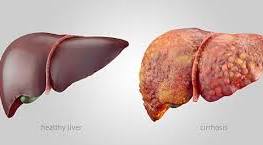INTRODUCTION
Health is wealth—a simple yet profound truth. One sickness can drain a
lifetime of savings, leaving individuals and families in distress. While modern
medicine has made remarkable strides in diagnosing and treating diseases, many
health conditions continue to defy medical solutions, pushing us to explore
alternative approaches.
Natural remedies have been a cornerstone of healing for centuries, long before
the advent of modern pharmaceuticals. Across cultures and civilizations, people
have relied on nature’s gifts—herbs, roots, fruits, and holistic practices—to
restore health and vitality. While this encyclopedia does not seek to undermine
the importance of medical science, it aims to complement it by shedding light
on time-tested natural solutions. It encourages further research into the power of
nature in healing, offering insights into remedies that have provided relief to
countless individuals.
Natural Remedies For Dengue Fever
Dengue fever is a serious viral illness, and while there is no specific
cure, supportive care is crucial. Natural home remedies can help
alleviate some of the symptoms and aid in recovery. It’s important to
note that these remedies are not a replacement for medical treatment. If
you suspect you have dengue fever, seek immediate medical attention.
Here are some natural remedies and their explanations:
1. Papaya Leaf Extract
How it works: Papaya leaves contain enzymes like papain that
can help increase platelet count, which often decreases during
dengue fever.
Preparation and usage: Take a few fresh papaya leaves. Wash
and crush them to extract the juice. Take 1–2 tablespoons of the
juice daily.
Where to find: Fresh papaya leaves can be obtained from a local
grocery store or market.
2. Fenugreek Seeds
How it works: Fenugreek seeds have anti-inflammatory
properties that can help reduce fever and provide relief from joint
pain.
Preparation and usage: Soak 1–2 teaspoons of fenugreek seeds
in water overnight. Strain the water and drink it in the morning.
Repeat daily until symptoms improve.
Where to find: Fenugreek seeds are commonly available in local
markets close to you.
3. Turmeric
How it works: Turmeric has anti-inflammatory and antiviral
properties that can help boost the immune system and reduce
fever.
Preparation and usage: Mix 1/2 teaspoon of turmeric powder
with warm milk or water. Drink this concoction once or twice a
day.
Where to find: Turmeric powder is widely available in local
markets close to you.
4. Ginger
How it works: Ginger has anti-inflammatory properties and can
help ease nausea and vomiting, common symptoms of dengue
fever.
Preparation and usage: Make ginger tea by boiling slices of
fresh ginger in water. Strain and drink the tea several times a day.
Where to find: Fresh ginger can be found in local markets close
to you.
5. Barley Water
How it works: Barley water helps maintain hydration and
provides essential nutrients that aid in recovery.
Preparation and usage: Boil 1/4 cup of barley in 2–3 cups of
water. Simmer for 30 minutes, strain, and let it cool. Drink the
barley water throughout the day.
Where to find: Barley is available in most local markets close to
you.
6. Basil Leaves
How it works: Basil leaves have antiviral properties and can help
reduce fever and inflammation.
Preparation and usage: Boil a few basil leaves in water to make
basil tea. Drink this tea 2–3 times a day.
Where to find: Basil leaves can be grown at home or purchased
from a local market.
Key Consideration
Remember that dengue fever can be severe, and it is essential to consult
a healthcare professional for proper diagnosis and treatment. These
natural remedies may help alleviate some symptoms but should not
replace medical care. Adequate rest, hydration, and consistent medical
supervision are crucial when dealing with dengue fever.



